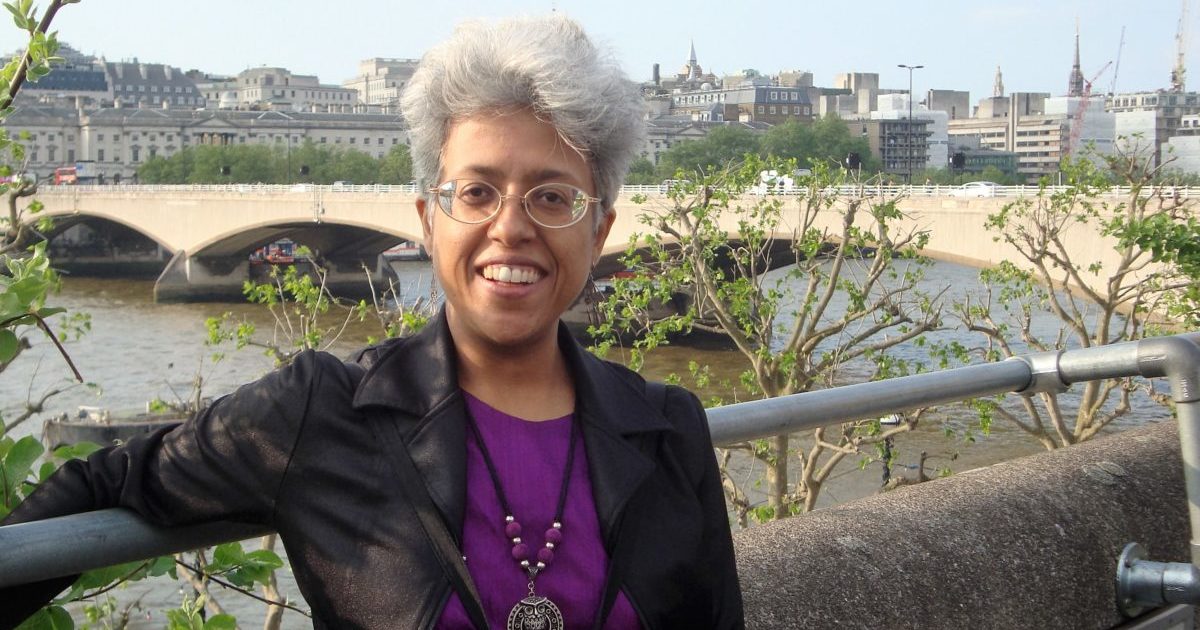Following an initial writing residency on the Isle of Lewis in August 2017 – reflections on which you can read on this site – last month novelist Abir Mukherjee and poet Nalini Paul travelled to Kolkata to work with two India-based writers: poet Sampurna Chattarji and novelist and journalist Sandip Roy. The authors are encouraged to creatively respond to items from the Mackenzie Collection, a rich and renowned collection of Asian art collected by Stornoway-born Colonel Colin Mackenzie during his time in India as its first surveyor general, and give new voice to the ongoing relationship between Scotland and India as these nations continue to define and redefine their contemporary relationships. The group will share their conclusions at the 2018 Edinburgh International Book Festival.
The following piece is the first response from Sampurna Chattarji, a poet, novelist, translator and children’s author of fourteen published titles. She is currently the Poetry Editor of The Indian Quarterly.
Opening a door called ‘cianalas’

In my most recent poetry book, Space Gulliver: Chronicles of an Alien (HarperCollins, 2015), I wrote about my protagonist’s ‘disinclination to pore over beautiful things/ in an overheated building filled with the loot of empires’. (The building in question, was, of course, the British Museum in London). So it was not surprising that my first response to the figure of Colin Mackenzie as an art collector who happened to be part of the machinery of the East India Company was a sceptical one. I found myself instinctively resisting the idea of what seemed to me (then) a kind of rapacious acquisitiveness rather than—as I discovered once I met Catherine Maclean of An Lanntair and understood the nature of the man and his drive—a personal obsession, a genuine curiosity and perhaps even love for another culture.
In other words, I realised that the project would be truthful for me if I were able to truthfully identify and investigate my own preconceptions about the ‘colonial collector’.
I think standing at Colin Mackenzie’s grave at the South Park Street Cemetery in Kolkata was the beginning of a new understanding. Here was a man who was ‘exiled’ to Kolkata on account of his new post as the first Surveyor General of India. He didn’t really want to be here, and it struck me as both ironical and poignant that he should have died here. He much preferred South India, where he had the kind of work he loved, and a family of assistants and friends to help him in his pursuit. In Kolkata his role, which was formal and superior, came with a greater sense of isolation. His uneasy relationship with Kolkata mirrored my own. I felt connected to the possible predicament of this man through a word I learnt from Catherine: ‘cianalas’ which means ‘homesickness’. I felt a pang for this man, buried so far away from his home, and I thought of his long journey—his passage into a world entirely alien to his native island. I wondered if all his obsessions with drawing, surveying, mapping and collecting were just so many ways of making the strange decipherable, creating co-ordinates to locate himself by. Mapping as a way of not losing oneself — I recognise that impulse, I have it too. Recently in Wales on a poetry project, I ended a poem with the words “I record everything, as if that alone may save me/ from extinction.”
So that’s when I knew I could be part of this project in a meaningful way. By looking at Colin Mackenzie’s fraught relationship with Kolkata, by examining the psychology of the mapper, the surveyor and by walking through the door opened by the word ‘cianalas’. When handling the manuscripts in the Asiatic Society I felt an explorer’s excitement. It was as if I were being encouraged not just to crack open an ancient chapter but to scribble my own notes in the margins, to make a marking from the present onto one tiny section of the past.
Share this Post
